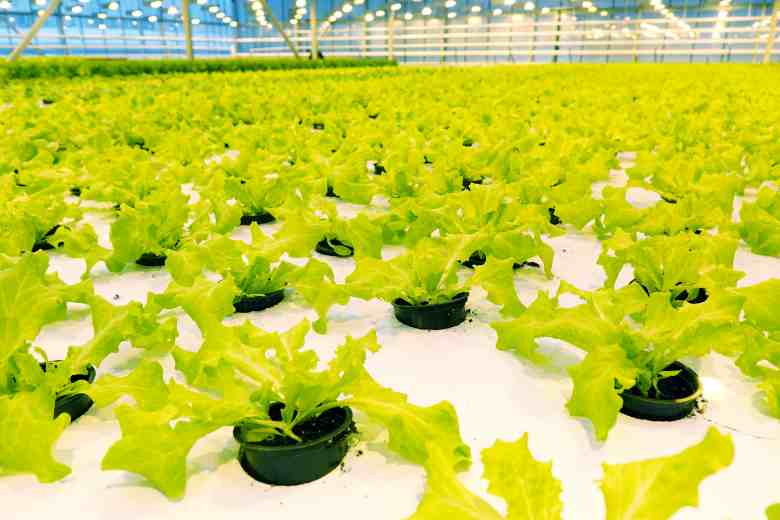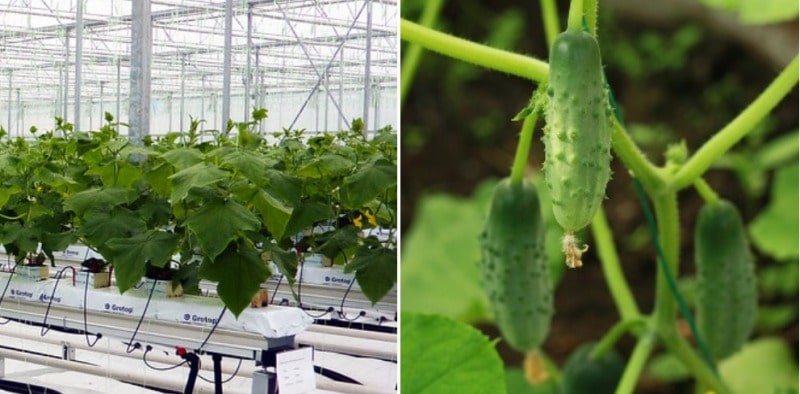
Hydroponic gardening is a method of growing plants without soil. This unique method can be used to cultivate a wide variety of vegetables, including cucumbers. Cucumbers grown hydroponically have numerous benefits compared to soil-grown cucumbers, and can be cultivated in a variety of different systems.
Hydroponically grown cucumbers are typically more nutritious, have a more intense flavor, and have an extended shelf life compared to soil-grown cucumbers. They are also more resistant to pests and diseases, and require less water and nutrients to thrive. With the right setup, anyone can successfully grow cucumbers hydroponically and enjoy the benefits of this method.
What is Hydroponic Gardening?
Hydroponic gardening is an innovative and sustainable way of growing plants without the need for soil. It uses mineral-rich water and nutrients to provide the plants with the sustenance they need to thrive.
This method of gardening is becoming increasingly popular due to its environmental friendliness as well as its ability to produce healthier and more productive plants.
Hydroponic gardening can be used to grow a wide variety of vegetables, herbs, and other plants indoors or outdoors with minimal effort and expense.
In addition to the environmental and cost benefits, hydroponic gardening has the potential to provide a greater yield of produce in a much shorter amount of time than traditional soil gardening. This makes it a great option for anyone looking to grow their own produce at home.
Advantages of Growing Cucumbers Hydroponically
Hydroponic cucumbers offer a range of advantages over their soil-grown counterparts.
For starters, there’s no need to worry about soil-borne diseases like mildew, fungi, and nematodes, because the cucumbers are grown in a nutrient-rich water solution.
Plus, hydroponic systems require less water than soil-based systems, and cucumbers tend to grow faster, allowing for more efficient harvests.
Additionally, the water solution can be easily monitored and adjusted to ensure optimal growing conditions, and the controlled environment helps to reduce the risk of pests.
Ultimately, hydroponic cucumbers offer a more efficient and effective way to grow cucumbers that are tastier, healthier, and more nutritious than soil-grown cucumbers.
Preparing for Hydroponic Cucumber Growing
Hydroponic cucumber growing is an increasingly popular way of growing cucumbers indoors. By using nutrient-rich water and other hydroponic techniques, cucumbers can be grown in a controlled environment without the need for soil.
Preparing for hydroponic cucumber growing requires careful planning and consideration of a few key factors, such as the type of hydroponic system to use, the nutrient solution to use, and the environmental conditions needed for optimal growth.
Additionally, the cucumbers will need to be monitored regularly for signs of nutrient deficiencies and other issues. With the right preparation, hydroponic cucumber growing can be a rewarding and productive experience for any home gardener.

Setting Up a Hydroponic Cucumber System
Hydroponic cucumbers can be a great addition to any garden. With this system, you can grow cucumbers without soil, using a nutrient-rich solution instead.
Setting up a hydroponic cucumber system is not complicated and can be completed in a few simple steps.
Start by selecting your hydroponic system and setting it up according to the instructions provided. Then, prepare the nutrient solution and fill the system with it.
Finally, plant the cucumber seeds and allow them to grow in the hydroponic environment. With the right care, you can start enjoying fresh cucumbers grown without soil!
Caring for Hydroponic Cucumbers
Hydroponic cucumbers are a great way to grow cucumbers in a controlled environment. Unlike traditional gardening, hydroponic cucumbers require no soil, fertilizer or pesticides to grow.
Instead, they are grown in a nutrient-rich solution and require a carefully monitored climate to prevent disease and ensure a healthy crop.
Caring for hydroponic cucumbers is quite simple and straightforward. The cucumbers are supported in a special netting or trellis so they can receive adequate light and ventilation.
The nutrient solution should be monitored and replaced as needed, and the temperature and humidity must also be controlled.
With the right care and maintenance, hydroponic cucumbers can be a great way to produce a delicious and healthy crop!
Troubleshooting Common Hydroponic Cucumber Problems
Growing cucumbers hydroponically is an efficient and productive way to produce this popular vegetable. However, it’s not without its challenges. Here’s a guide to troubleshooting common hydroponic cucumber problems:
1. Nutrient Deficiency or Imbalance
Symptoms: Yellowing or curling leaves, stunted growth, poor fruit development
Solution: Monitor and maintain proper nutrient levels and pH in the nutrient solution. Make sure you are using a well-balanced nutrient mix designed for hydroponics.
2. Root Rot
Symptoms: Wilted or yellowing leaves, slimy and brown roots
Solution: Ensure proper oxygenation of the nutrient solution and maintain cleanliness in the hydroponic system. Consider adding beneficial bacteria that combat root rot.
3. Powdery Mildew and Other Fungal Infections
Symptoms: White powdery substance on leaves, rotting fruit
Solution: Increase air circulation, reduce humidity, and consider using a fungicide. Proper spacing of plants can also prevent this.
4. Pest Infestation (e.g., Aphids, Spider Mites)
Symptoms: Visible insects, distorted or discolored leaves, slow growth
Solution: Introduce beneficial insects, such as ladybugs, or use insecticidal soaps. Regular inspection and early intervention can prevent major infestations.
5. Inconsistent or Inappropriate Lighting
Symptoms: Leggy plants, poor flowering and fruiting
Solution: Adjust the light duration and intensity to mimic natural sunlight. Consider using full-spectrum grow lights that are suitable for fruiting plants.
6. Poor Pollination (for varieties that require pollination)
Symptoms: Flowers dropping, lack of fruit development
Solution: If growing a variety that requires pollination, consider hand pollination using a small brush or add pollinators like bees if growing in a greenhouse.
7. Temperature Fluctuations
Symptoms: Poor growth, blossom end rot
Solution: Maintain consistent temperatures within the optimal range for cucumbers, generally around 18-24°C (65-75°F).
8. Over-watering or Under-watering
Symptoms: Wilted or drooping leaves, root rot
Solution: Monitor and adjust the water level to ensure the roots are neither submerged nor dried out. A proper balance is essential for nutrient absorption.
9. Poor Support and Training
Symptoms: Broken stems, misshapen fruits
Solution: Provide appropriate support and training for cucumber vines. This can include trellises, stakes, or nets.
FAQs About the Can You Grow Cucumbers Hydroponically
What are the benefits of growing cucumbers hydroponically?
Answer: Hydroponic growing offers several advantages over traditional soil-based gardening. These include faster growth rates, greater yields, fewer pests, and no need for soil preparation.
What type of hydroponic system is best for growing cucumbers?
Answer: The best hydroponic system for growing cucumbers is a deep water culture (DWC) system. This system uses a nutrient-rich solution that is oxygenated and circulated around the cucumber roots.
How much space do I need to grow cucumbers hydroponically?
Answer: The amount of space you need to grow cucumbers hydroponically depends on the type and size of hydroponic system you are using. Generally, a minimum of 3 square feet of space is required for a DWC system.
Conclusion
It is possible to grow cucumbers hydroponically. Hydroponic gardening is an efficient and effective way to grow cucumbers with less water and soil. With the right setup, it is possible to produce large yields of cucumbers with little effort. Hydroponic gardening is also an environmentally friendly way to grow cucumbers, as it requires fewer resources and fewer pesticides and fertilizers. Hydroponic cucumbers can have a higher quality than traditionally grown cucumbers, as they are not exposed to soil-borne diseases and pests.






